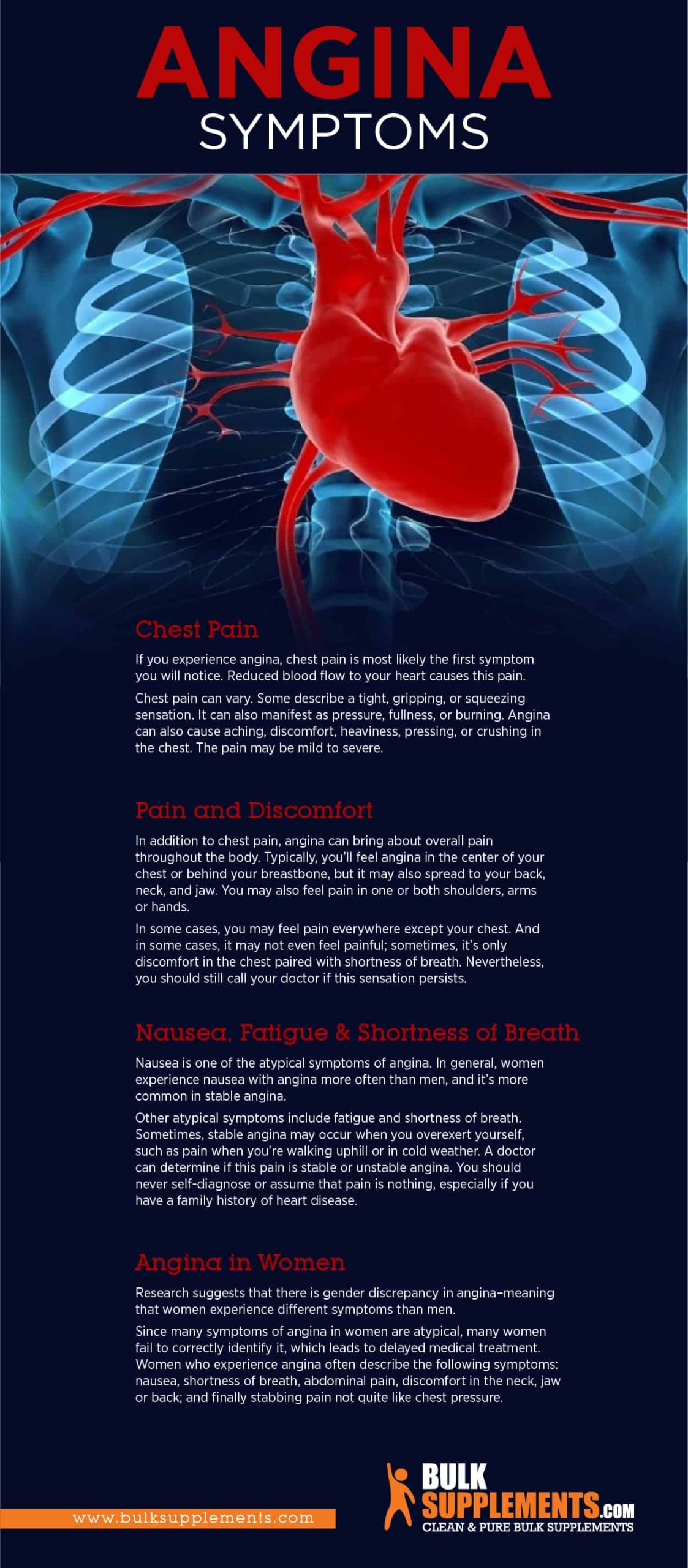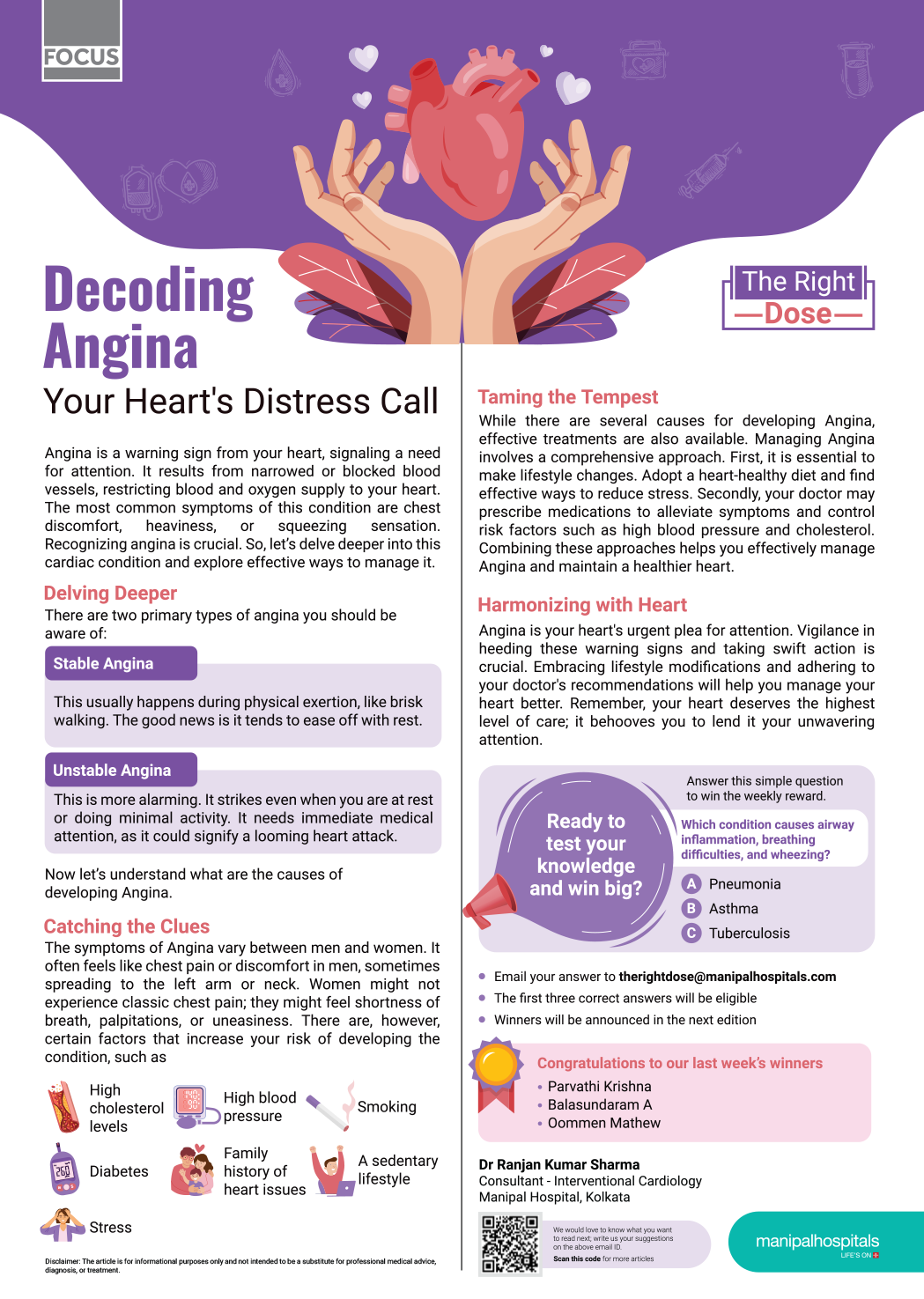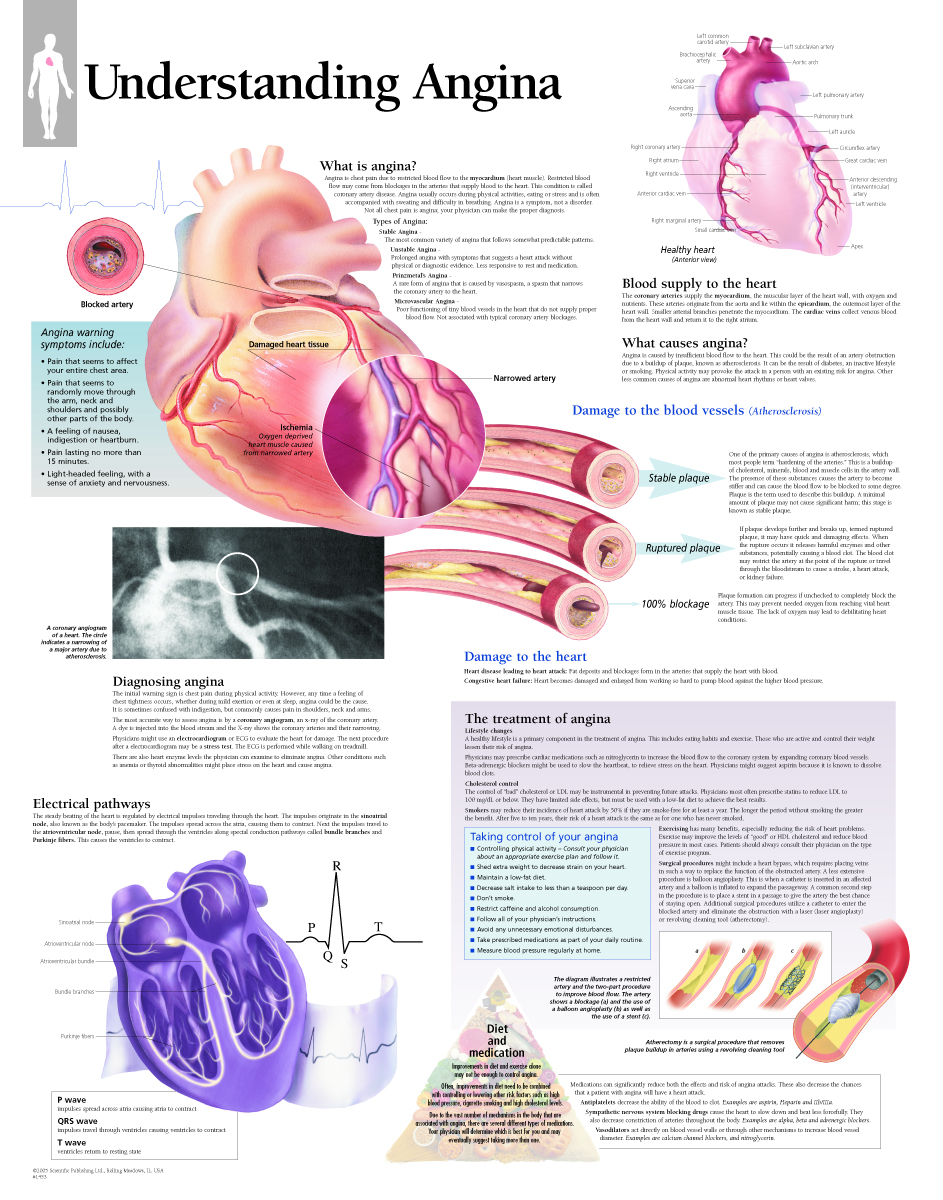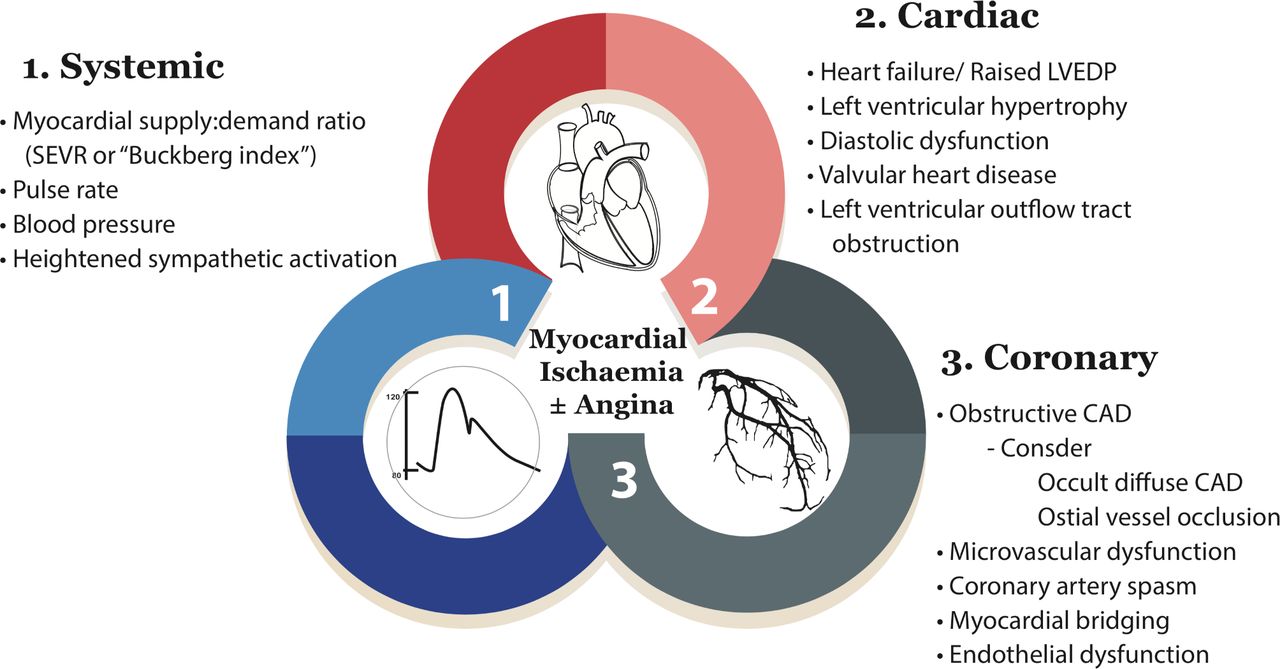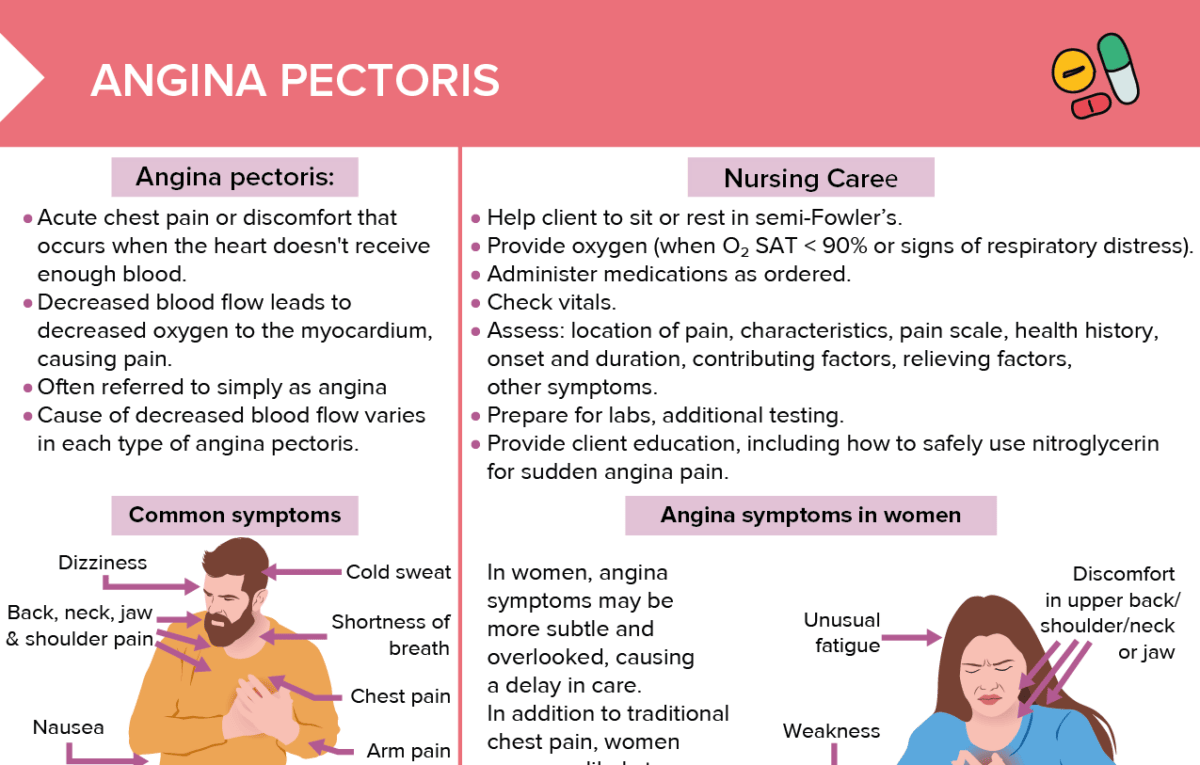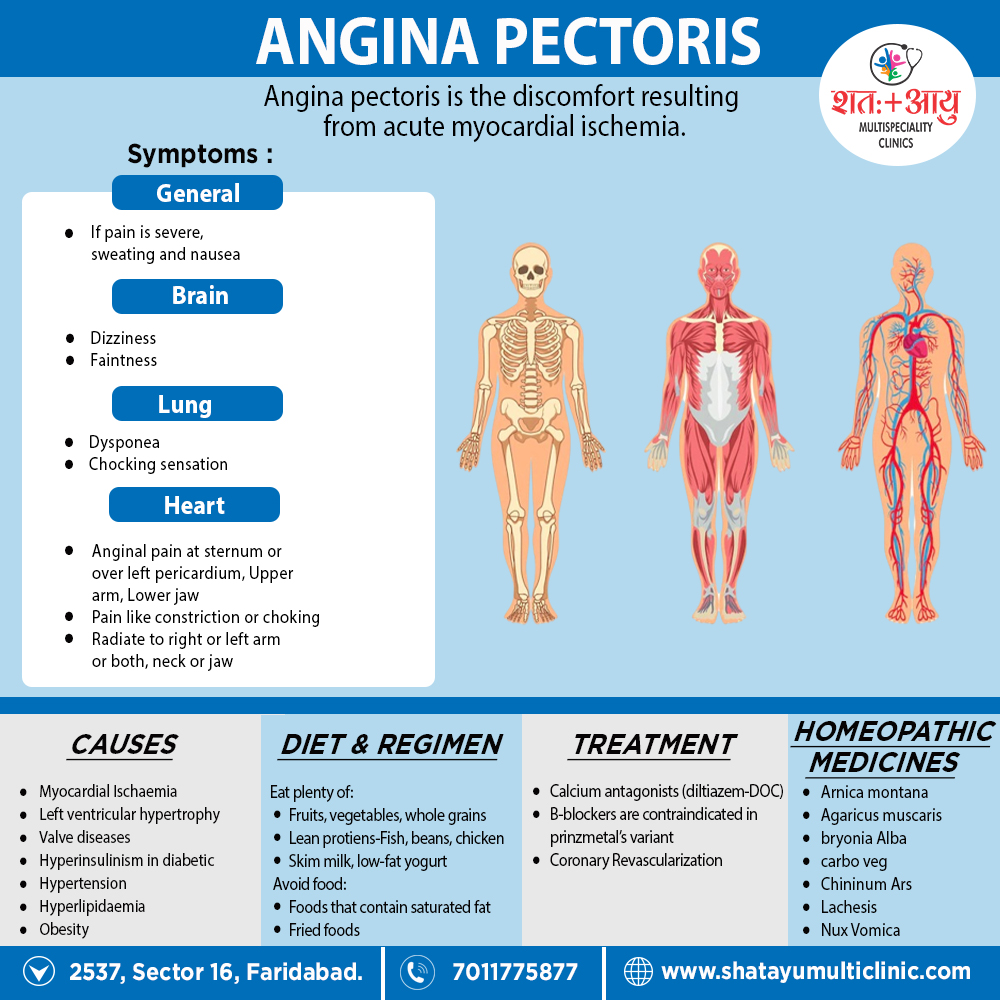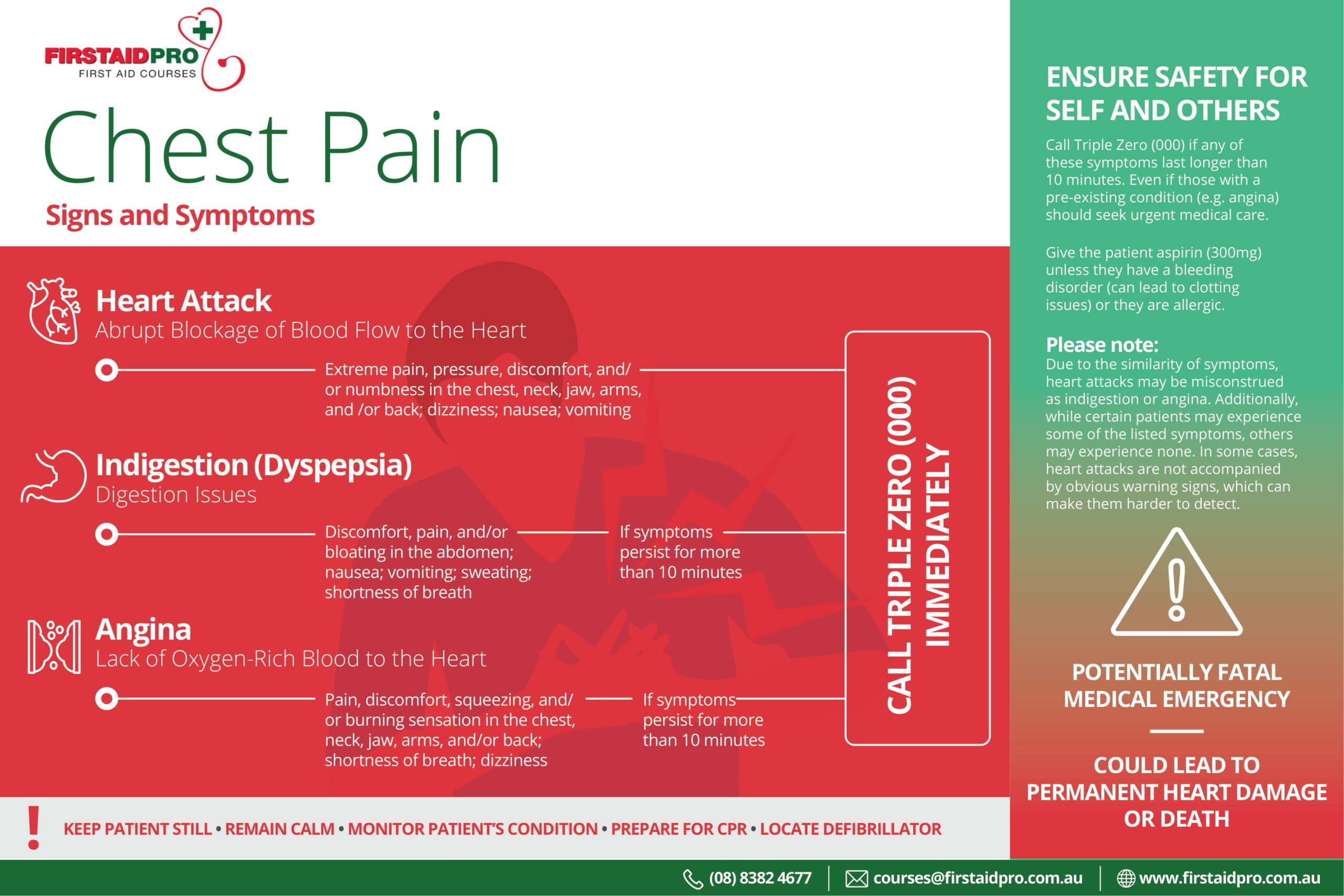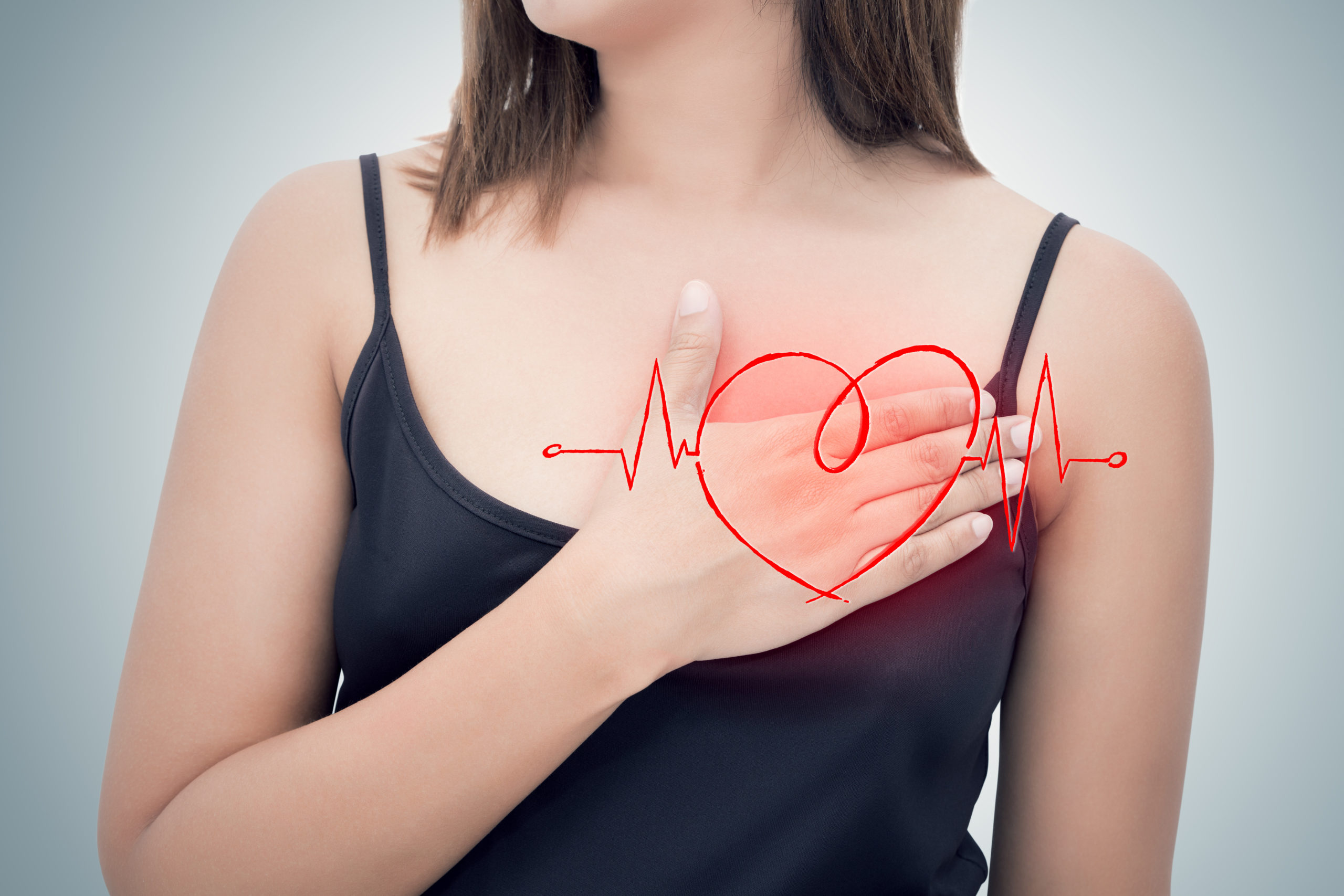
What is angina?
Chest pain can be caused by many things, including angina (also known as angina pectoris).
Angina is chest pain or discomfort (tightness) that:
- lasts for 10 minutes or less
- gets better with rest
Angina usually comes on during physical activity. It can also be triggered by strong emotions. It gets better quickly with rest.
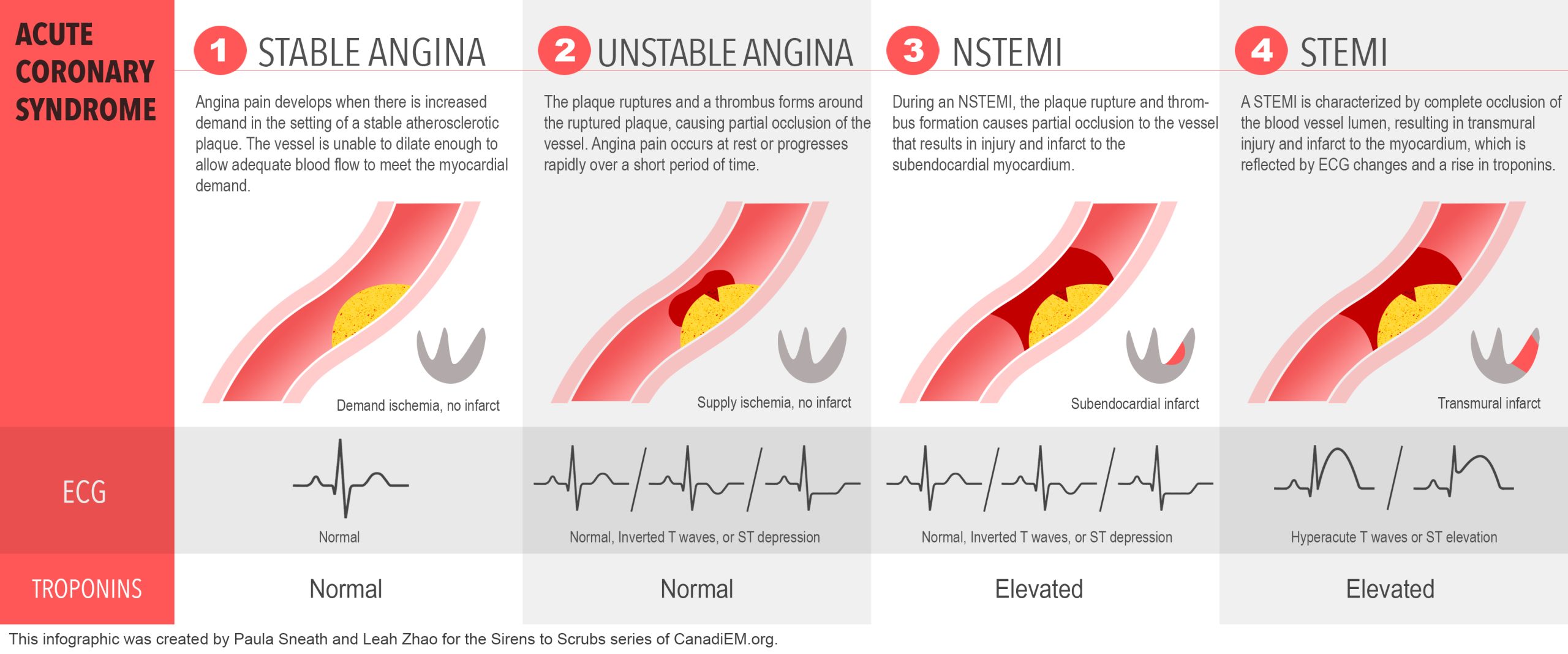
What is stable angina?
Stable angina is angina that has not changed in the last month. That means the symptoms are the same as usual. Symptoms come on with activity or strong emotions and settle quickly with rest.
What is unstable angina?
Unstable angina is angina that is different to your usual symptoms. It may:
- come on at rest or with a little bit of activity
- be unpredictable
- last longer than usual
- happen more often than usual
- not respond as well to your angina medicine
If you have angina that has changed or become more severe, see your doctor urgently. Or go to your nearest hospital emergency department.
You should also see your doctor if you have other changes in symptoms, such as feeling breathless.
What is Prinzmetal angina?
Prinzmetal angina (or Prinzmetal’s) is angina caused by spasms of the coronary arteries. It is also called variant angina. Chest pain can come on suddenly, at rest or even when you are sleeping.
What is Ludwig’s angina?
Ludwig’s angina is actually caused by a tooth abscess. It is not related to your heart.
What are the symptoms of angina?
Angina causes temporary discomfort or pain in your chest. It usually happens during physical activity or when you are upset.
Angina usually goes away after resting for a few minutes. Taking angina medicine also usually makes it better.
Symptoms of angina can include:
- pain or discomfort in your chest, often described as squeezing, pressure or tightness
- pain in your arms, shoulder, neck or jaw, even if you don’t have pain in the chest
- shortness of breath
- fatigue
- sweating
- dizziness
- nausea
If you have any of these symptoms, see your doctor.
What causes angina?
Angina is caused by insufficient blood flow to the muscles of the heart.
Even though the heart is full of blood, this blood is pumped through the body. The muscles of the heart need their own supply of blood. The blood for the heart is carried through the coronary arteries, which sit on the outside of the heart.
If you have coronary artery disease (also known as coronary heart disease), then these arteries have become narrowed by fatty deposits known as plaques. Narrowed arteries can’t carry as much blood as they should.
So, when your heart muscle needs more blood than usual, such as during exercise, the reduced blood supply causes angina.
How is angina diagnosed?
To help diagnose angina, your doctor will ask you about your symptoms and examine you. They will want to know what brings on your symptoms and how long they last.
Some tests may be recommended straight away. These include:
- an electrocardiogram (ECG)
- a blood test called troponin that measures damage to the heart muscle
Other tests that may be recommended include:
- blood tests
- chest x-ray
- an exercise stress test – which measures blood pressure and heart activity during exercise
- an echocardiogram – an ultrasound to see how well your heart is pumping
- an angiogram
What to do if you get angina
If you have any symptoms of angina, immediately stop, sit down and rest.
If your symptoms are still there once you’ve stopped, take your usual angina medicine. This is usually a spray or tablets that you put under your tongue.
If your symptoms are still there in 5 minutes, repeat the dose. Tell someone how you’re feeling. This can be in person or by phone.
Take a third dose of angina medicine and call an ambulance on triple zero (000) if your angina symptoms are:
- very bad
- getting worse
- last for more than 10 minutes
How is angina treated long-term?
Long-term treatment aims to reduce symptoms and reduce your risk of having a heart attack.
Lifestyle
Lifestyle measures to help treat your underlying coronary heart disease include:
- quitting smoking, if you smoke
- eating a healthy diet
- maintaining a healthy body weight
- safely increasing your physical activity under the supervision of your doctor
- reducing stress
Medicines
Your doctor might prescribe medicines called nitrates to relax your blood vessels, so more blood flows to your heart.
You may also need other heart medications, including:
- aspirin
- cholesterol-lowering medicines such as statins
- beta-blockers
Some people with angina need surgery such as angioplasty or coronary artery bypass surgery.
Your doctor might advise you to join a cardiac rehabilitation program. This will help you manage your angina and reduce the risk of further heart problems.
